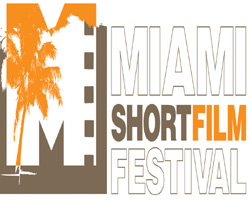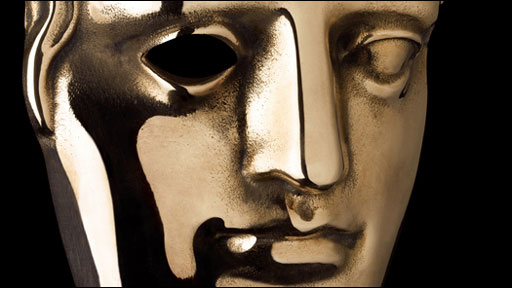|
|
||
|
Pro Tools
FILMFESTIVALS | 24/7 world wide coverageWelcome ! Enjoy the best of both worlds: Film & Festival News, exploring the best of the film festivals community. Launched in 1995, relentlessly connecting films to festivals, documenting and promoting festivals worldwide. Sorry for the interruption, we needed to correct and upgrade some modules. Working on a new website. For collaboration, editorial contributions, or publicity, please send us an email here. You need for put your full detail information if you want to be considered seriously. Thanks for understanding. User login |
ÉCU-The European Independent Film FestivalÉCU - The European Independent Film Festival is dedicated to the discovery and advancement of the very best independent films from around the world. We are a festival who believes in our independent filmmakers and their artistic talents. ÉCU proudly provides a unique platform that brings together diverse audiences who are hungry for something other than major studio productions and original and innovative filmmakers.
The 16th edition of ÉCU - The European Independent Film Festival will take place on 9th-11th April 2021. Now open for submissions!
For more details regarding the festival, please visit our website at www.ecufilmfestival.com.
 Meet Indie Filmmaker: TARANTYNO
On set, Director Mircea Nestor (left) Antonia Micu (middle) and Bogdan Cotleț (right).
We speak to Romanian director Mircea Nestor about his recent submission to ECU’s European Dramatic Short category, By Mairi Cunningham
Q: Firstly, tell me what your film is about and where your inspiration for the story lies.
"Tarantyno" Q: There is a definite shock value in the way your story unfolds. The humorous dialogue between the two brothers at the beginning coupled with the banality of their existence renders Tarantyno’s actions even more disturbing. Was this ‘shock value’ something you specifically set out to achieve?
Well, no. It was just a matter of "what fits best in the grand design" sort
Actor Bogdan Cotlet in the role of Tarantyno.
Q: Is there significance in the focus you place on the material goods (e.g. the car, mobile phone and Tarantyno’s metal cigarette case)?
I thought the cigarette case would be a nice idea, like a little extra Q: Explain a bit about the father figure in the film (or lack of). Do Tarantyno’s actions ultimately stem from a need to prove himself within a very ‘macho’ family culture?
I suppose that would be where it all stems from, yes. The little back Q: Perhaps this is the wrong reaction, but when watching your film I was torn between disgust at Tarantyno’s final act and sympathy towards him, particularly because of the way he is treated by his older brother and Narcisa. He struck me as a model of disenchanted and frustrated youth, unaccepted and belittled by those around him. Is this paradoxical reaction from the viewer something you were specifically aiming to achieve?
I Q: Tell me a little bit about the casting process and also generally about working with your actors.
Since Q: What genre would you see you film falling under?
Ah, this is a tricky question because I'm not really good with genres.
On set of “Tarantyno”.
Q: The scene towards the end of the film outside the city produced mixed emotions in me as a viewer. The brutality of the action and the long shot of the wasteland together produced something eerily beautiful. Tell me a little bit about this scene, both from a stylistic and practical point of view. And why the decision to shoot it in silence?
That
For more information about 'Tarantyno' check out the film's official website. www.tarantyno.wordpress.com. 09.02.2010 | ÉCU-The European Independent Film Festival's blog Cat. : Independent
|
LinksThe Bulletin Board > The Bulletin Board Blog Following News Interview with EFM (Berlin) Director
Interview with IFTA Chairman (AFM)
Interview with Cannes Marche du Film Director
Filmfestivals.com dailies live coverage from > Live from India
Useful links for the indies: > Big files transfer
+ SUBSCRIBE to the weekly Newsletter DealsUser imagesAbout ÉCU-The European Independent Film Festival Hillier Scott Hillier Scott (ECU)
Scott Hillier, Founder and President of ÉCU - The European Independent Film Festival
Scott Hillier is a director, cinematographer, and screenwriter, based in Paris, France. In the last 20 years, Hillier has gained international recognition from his strong and incredible cinematography, editing, writing, producing and directing portfolio in both the television and film industries.
Scott began his career in the television industry in Australia. In 1988, he moved to London getting a job with the BBC who then set him to Baghdad. This opportunity led him to 10 years of traveling around world for the BBC, mainly in war zones like Somalia, Bosnia, Tchetcheynia, Kashmir, and Lebanon. After a near fatal encounter with a Russian bomber in Tchechnyia, Hillier gave up his war coverage and began in a new direction.
He moved to New York City in 1998. He directed and photographed eight one-hour documentaries for National Geographic and The Discovery Channel. Based on his war knowledge and experience, Hillier wrote and directed a short film titled, “Behind the Eyes of War!" The film was awarded “Best Short Dramatic Film” at the New York Independent Film and TV Festival in 1999. From that he served as Supervising Producer and Director for the critically acclaimed CBS 42 part reality series, "The Bravest” in 2002 and wrote and directed a stage play called, "Deadman’s Mai l," which ran at Le Théâtre du Moulin de la Galette in Paris during the summer of 2004. He then became the Director of Photography on a documentary titled, “Twin Towers." This was yet another life changing experience for Hillier. The riveting documentary won an Academy Award for "Best Documentary Short Subject" in 2003. In 2004, Hillier changed continents again, spending three months in Ethiopia. He produced “Worlds Apart,” a pilot for ABC America / True Entertainment / Endemol. As you can see, Hillier was and is always in constant movement and enjoys working in a number of diverse creative areas including documentaries, music videos, commercials, feature and short films.
Scott studied film at New York University and The London Film and Television School. He also studied literary non-fiction writing at Columbia University. Hillier's regular clients include the BBC, Microsoft, ABC, PBS and National Geographic. Between filming assignments, he used to teach film, a Masters Degree course in Screenwriting at the Eicar International Film School in Paris, France and journalism at the Formation des Journalistes Français in Paris, France.
View my profile Send me a message The EditorUser contributionsUser links |



















